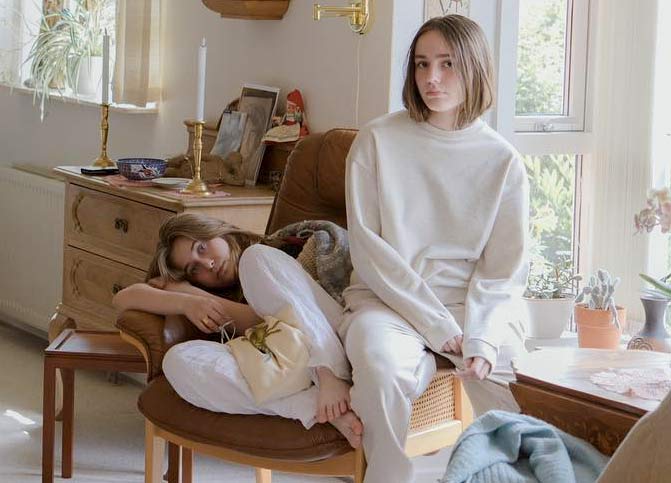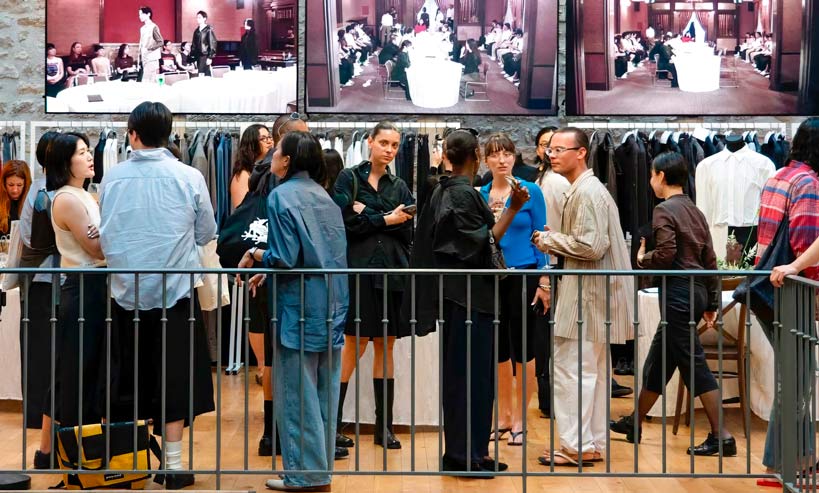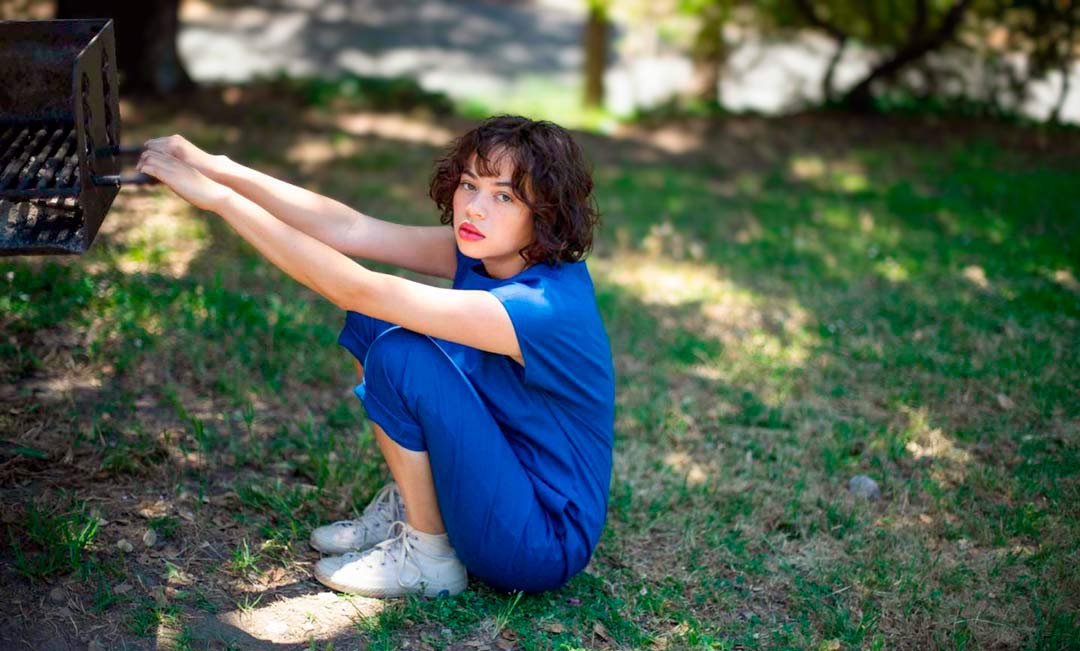Slow fashion in 2026 is driven by independent designers who focus on small-batch production, ethical materials, and timeless design, creating clothing that lasts longer and means more. Independent labels are leading this shift with certified fabrics, local manufacturing, and thoughtful craftsmanship.
Below, we profile top studios that show how sustainable fashion can be both stylish and responsible.
“When we first started paying attention to slow fashion, it wasn’t a sudden revelation. It was noticed that the cotton tee we bought from a small Danish brand years ago still looked new, while cheaper ones faded after a few washes. That kind of quiet durability said something deeper – about time, intention, and care.
In the past few years, we’ve seen more people, especially in Canada and Australia, looking for clothes that outlast seasons. We’ve also seen designers rethink how clothing is made and who it’s made for. These independent studios don’t just design garments. They design better systems: small-batch production, ethical supply chains, and materials that respect both people and the planet.”
The Makers Behind the Movement
Each of the following brands brings a unique story and philosophy to slow fashion. Together, they represent a global movement of creativity rooted in responsibility.
Baserange, Denmark/France
Founded between Denmark and France, Baserange has become a quiet leader in sustainable minimalism. The brand focuses on soft rib knits, underwear, and natural silhouettes designed for everyday wear. Their dyes are certified by GOTS and Oeko-Tex, and their fabrics are primarily organic or recycled.
Baserange pieces age gracefully, proving that clothing can be both practical and poetic. They’re ideal for anyone who values comfort, texture, and timelessness over trend cycles.


Tigre et Tigre, Los Angeles
In Los Angeles, Tigre et Tigre captures that effortless 1990s confidence – casual, clean, and full of quiet character. The brand was founded by Adele Tetangco and Alnea Farahbella, two designers inspired by accessible fashion made responsibly.
Every piece is produced locally in LA in small runs, giving the studio the flexibility to experiment while staying grounded in sustainability. The result: easy tops, flowing dresses, and wardrobe staples that feel personal, not mass-made.
By Signe, Denmark/Turkey
By Signe proves that independence and ethics can coexist beautifully. Founded by designer Signe Rødbro, the label operates its own socially responsible atelier in Izmir, Turkey. That means design, cutting, and sewing all happen under one transparent roof.
The Black/White Frill Skirt and Cream Disa Dress are among their signature items – minimalist, modern, and made from certified organic fabrics. The brand’s consistent sizing and focus on fit reflect a commitment to garments that feel as intentional as they look.
St. Agni, Australia
From Byron Bay, St. Agni has redefined uniform dressing for the modern minimalist. The brand’s philosophy – “less is more” – guides everything from its design language to its ethical manufacturing standards.
St. Agni’s factories hold third-party certifications such as SA8000, SMETA, and BSCI, ensuring fair wages and safe working environments. Their refined knit dresses and high-quality leather bags blend understated luxury with functional design. These are polished capsule pieces that last years, not months.
323, Los Angeles
Los Angeles label 323 brings emotional intelligence to fashion. Its collections, crafted in small runs from deadstock fabrics, feel personal and imperfect in the best way. Every item, from the Lola Jumpsuit to the Tallulah Dress, is made with care and authenticity.
323 is about making clothes that feel human – garments that hold meaning, use what already exists, and remind us that sustainability can be intimate.

AMOMENTO, Seoul
Seoul’s AMOMENTO stands out for its architectural approach to design. Founded in 2016, the brand works closely with skilled local manufacturers and sources fabrics from top Japanese and Korean mills.
Their knitwear and structured outerwear, like the Recycled Down Long Coat, balance comfort with precision. Every seam feels deliberate. The label reflects South Korea’s growing influence on global sustainable fashion — design-driven, detail-focused, and deeply respectful of materials.
Permanent Vacation, Melbourne
Permanent Vacation from Melbourne doesn’t follow the traditional fashion calendar. Instead, it releases small, curated “Projects” – each exploring a specific mood, idea, or visual theme.
All production happens ethically within 15 kilometres of the brand’s studio, ensuring full transparency and low environmental impact. The pieces are simple, wearable, and quietly elegant – built for people who value continuity over constant change.
Combine De Filles, Brooklyn
For Combine De Filles, the jumpsuit is the ultimate symbol of ease and equality. The Brooklyn-based studio, led by Aissatou Marie B., makes small-batch designs that transcend trends.
Their Le Coco and Le Bleu De Travail jumpsuits have become cult favourites – timeless, functional, and made for movement. The brand treats simplicity as strength, proving that fewer pieces can do more when made well.

Mirador, Australia
Australian label Mirador blurs the line between art and apparel. Designer Lauren Cassar hand-paints and prints each textile before it’s cut and sewn locally.
The results are vibrant, expressive garments that celebrate imperfection — think painterly cami tops and flowing dresses with marbled textures. Mirador shows how slow fashion can embrace creativity without compromise.
NICO, Australia
NICO focuses on the base layers – the pieces we rely on daily. Based in Brisbane, the brand creates underwear, bras, and tees from organic cotton and recycled fibres.
Their commitment to transparency helped set a benchmark for Australian ethical fashion. Each supplier is documented, and the brand prioritizes comfort that encourages mindful wear and fewer washes. In 2025, NICO remains one of the most trusted names for sustainable basics.
Belle The Label, Bali
In Bali, Belle The Label turns sustainable design into community empowerment. Founded by Annabelle Noelle, the brand uses natural and regenerated materials, non-toxic dyes, and a zero-waste approach.
Beyond sustainability, Belle The Label’s factory provides training for women transitioning out of sex work, offering safe employment and fair pay. Their soft knit lounge sets and handcrafted swimsuits embody slow fashion at its most human – ethical, beautiful, and kind.
Build a Slow-fashion Capsule (7 Pieces, Many Outfits)
Building a slow wardrobe is about rhythm. The idea is to create fewer, better outfits that mix naturally. Using pieces from these brands, we’ve tested this simple 7-piece capsule that covers most seasons and lifestyles.
- Foundational base: NICO crew + Baserange rib layer
- Tailored bottom: By Signe skirt or St. Agni relaxed trousers
- Knit rotation: AMOMENTO or St. Agni knit dress/sweater
- One-piece anchor: Combine De Filles or 323 jumpsuit
- Statement print: Mirador cami/dress to break neutrals
- Light outer: Permanent Vacation jacket (Projects series)
- Lounge/swim: Belle The Label knit set for off-days
Styling Notes
Mix ribbed textures with smooth cottons or structured denim. Keep two or three core colours (sand, black, ivory) and use one accent tone through a print or accessory. We’ve found that this limited palette actually opens more styling options and makes daily dressing feel calmer.
The outcome? About 20 distinct looks that transition across work, weekends, and travel. It’s proof that sustainable fashion doesn’t have to mean sacrificing variety.
